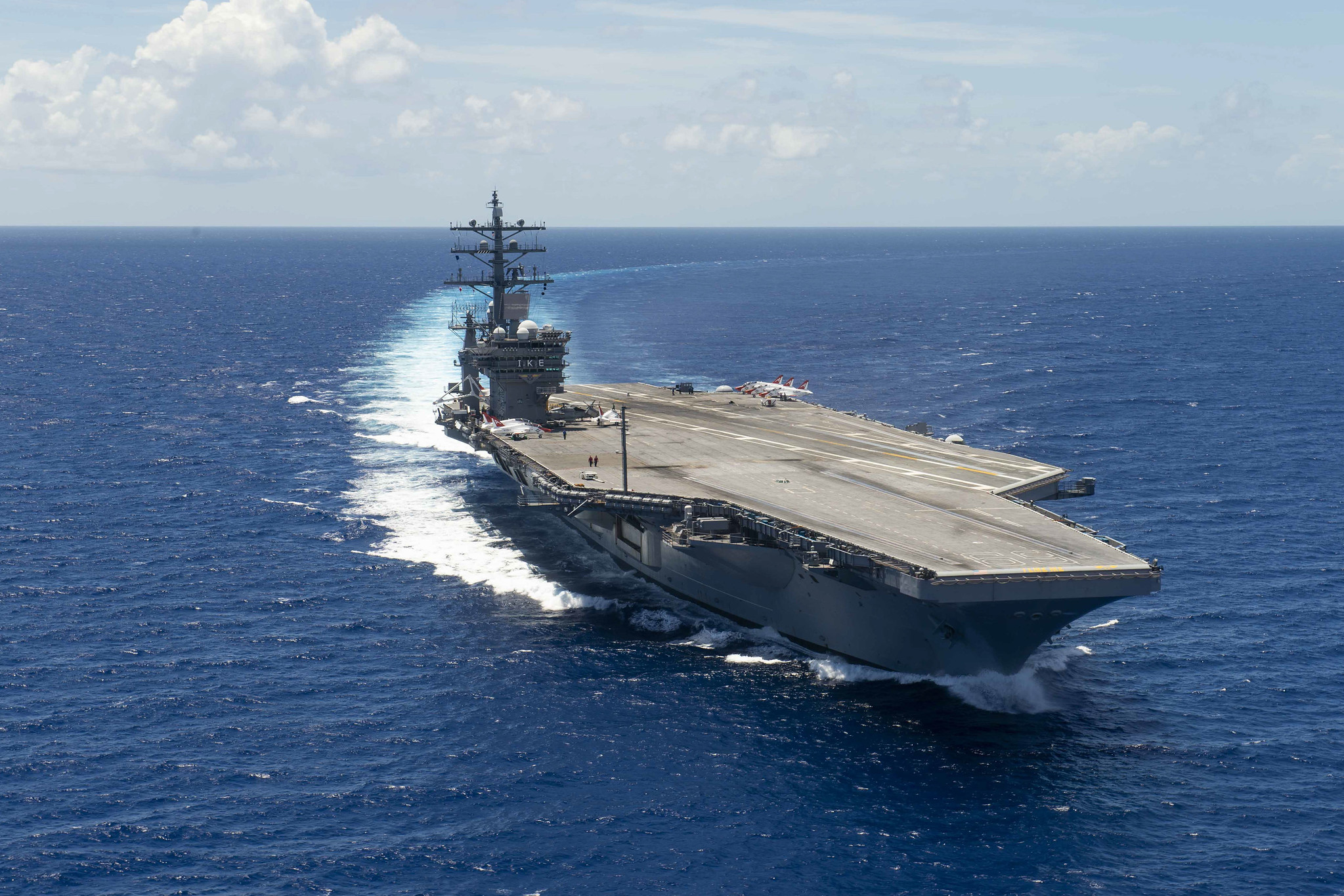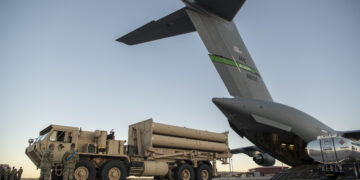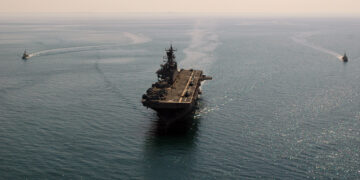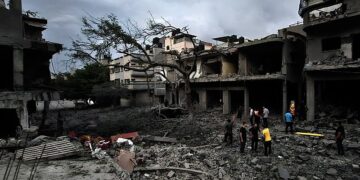February 16, 2024
The pragmatic steps the United States needs to take in the Red Sea

Involvement in a broader war in the Middle East would not only bring serious economic pain and strategic overstretch to the United States, but, given the unpopularity of war at home, it would also create a degree of national disillusionment that would do significant damage to Americans’ willingness to protect sea-lanes going forward. In short, too much commitment to principle today might kill the U.S. commitment to principle tomorrow. To avoid this, the United States needs to take three pragmatic steps: adopt a firm defensive strategy in the Red Sea, reduce targets for proxy attacks, and push Israel toward a ceasefire in Gaza.
In tandem with its retaliation for the recent deaths of three U.S. soldiers in Jordan, the United States launched a fresh round of attacks against Iranian-backed Houthi targets in Yemen on February 2-3. The strikes were part of an ongoing effort to protect sea-lanes in the Red Sea. Since early January, U.S. forces have launched well over 100 missiles into Yemen against the Houthis.
Maintaining open sea lanes is in the United States’ national interest. Yet, escalation today begs an important question: Is getting dragged into a broader Middle East war worth the cost to U.S. national security of protecting the principle of unfettered access to sea-lanes, both in general and in practice in the Red Sea?
More on Middle East

Featuring William Walldorf
December 11, 2025

By Benjamin Friedman and Rosemary Kelanic
December 5, 2025

By Geoff LaMear
December 5, 2025

Featuring Rosemary Kelanic
December 2, 2025




